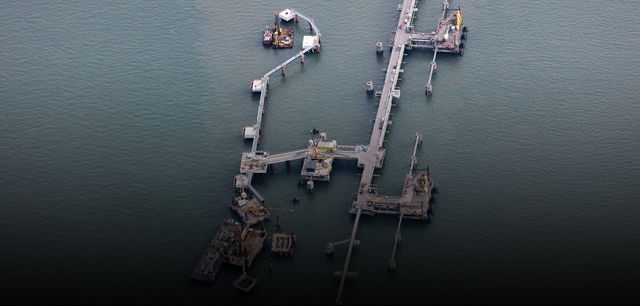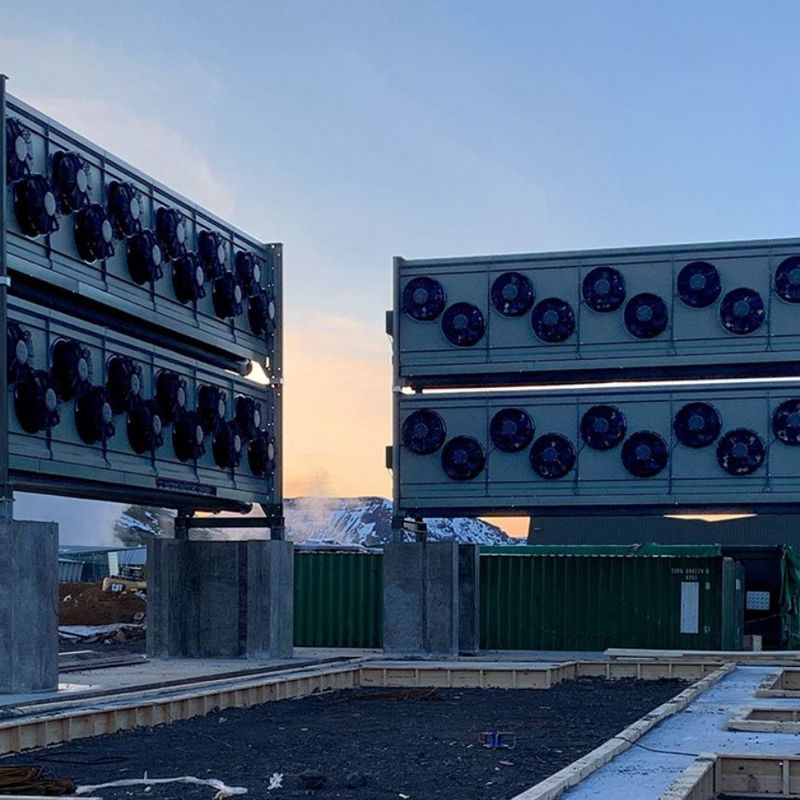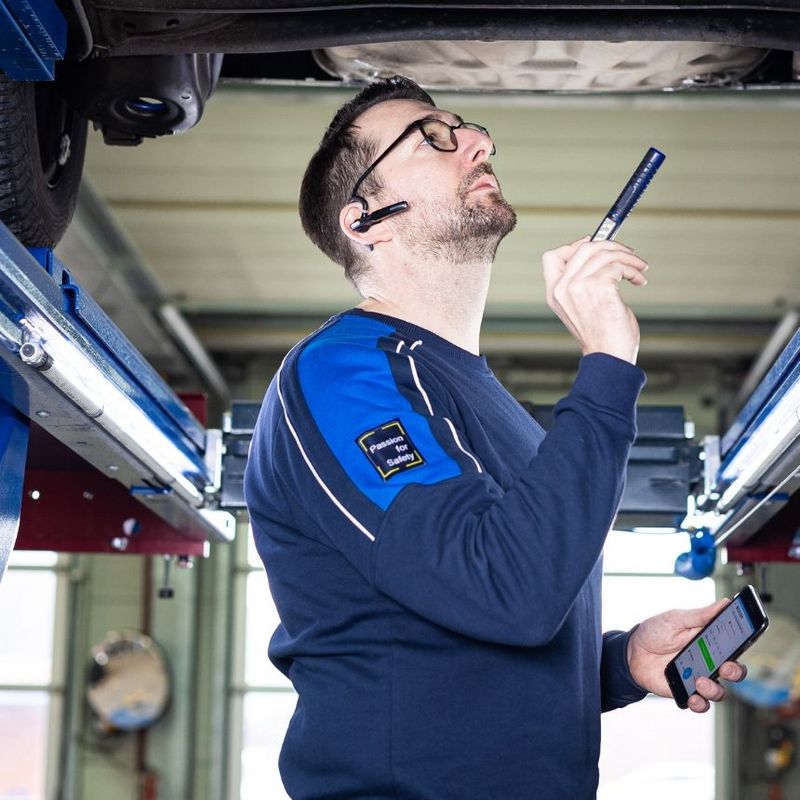27. July 2023
Various global crises are combining to threaten our present – and our future. And yet, there have long been lots of levers we could use to overcome these challenges. In his book “Unsere Überlebensformel” (“Our Survival Formula”), futurologist Ulrich Eberl illustrates the enormous potential of scientific achievements. We talked to him about the urgent need to finally apply them.
#explore: Climate change, species extinction, feeding the world: in your opinion, which global challenge is most urgent and needs to be tackled first?
Ulrich Eberl: If we don’t sharply slow down climate change over the next 20 years, we won’t be able to get a grip on any of the other crises. Everything is connected to everything else. According to the Intergovernmental Panel on Climate Change, if the temperature rises by two degrees in the second half of this century, 99 percent of all coral reefs – the most species-rich ecosystems besides the rainforests – will die. Precipitation is shifting, drought is becoming more widespread, and harvests could collapse by a quarter. Not forgetting the fight against poverty and inequality – if we don't succeed in tackling these, we will also fail in our attempts to deal with environmental crises ranging from plastic waste to climate change. Nor will rich countries be spared: If regions of the globe become uninhabitable, hundreds of millions of people will find themselves in conditions which no longer sustain life and be forced to leave their home countries as a result.
In your book “Unsere Überlebensformel” you write that not only is the diversity of life on Earth threatened, but the very survival of our civilization. Do we even still have time to turn this around?
We must, because otherwise humanity will go down in a blaze of conflict. Following the news is enough to induce panic, but I think our situation is better than the general mood. The decades of ignoring the problems are over, and work on the solutions is finally underway – not quickly and consistently enough, but still. The US is funding climate technologies to the tune of $370 billion. The EU is mobilising even more urgently to become the first climate-neutral continent by 2050. In partnerships, we’re helping countries such as South Africa and Indonesia to leave behind the era of coal. And alliances are emerging around the world for green hydrogen, against the destruction of rainforests and for common environmental and social standards for raw materials such as lithium and rare earths.
About
© Peter Hassiepen Piper VerlagUlrich Eberl, who holds a doctorate in biophysics, was, among other things, head of innovation communications at Siemens for many years. He now works as an independent futurologist, international lecturer and author.
In your book, you describe in many places how scientific and technological solutions have long been available. But are they affordable?
I’d even go as far as to say that that’s what gives me the most hope. In the case of electric cars, the cost of batteries has fallen by 90 percent since 2010. Electricity from wind and sun is now cheaper than coal-fired electricity everywhere in the world, in some regions by a factor of ten – and that without subsidies! So, it’s no wonder that three-quarters of all newly installed power plant capacity worldwide is now accounted for by wind farms and solar plants. Even green hydrogen is well on its way to being more cost-effective than hydrogen from natural gas by 2030.
© MAN Energy SolutionsOpen to technology: A large-scale heat pump In Esbjerg, Denmark, uses wind power to generate enough district heating for 27,000 households from seawater.
And what about the heat pump? Here, high costs and a lack of openness to technology are major points of criticism of Germany’s Heating Act.
Virtually no one will dispute that a heat pump is the most efficient heating solution for new buildings and well-insulated houses. If they are manufactured at scale, costs will continue to fall. Often, however, heat pumps will also pay off in existing buildings, and, at this point, I would make a plea for pragmatism. If reductions in greenhouse gas emissions can be achieved in other ways – using district heating, geothermal energy, biogas or wood waste – then none of these should be blocked. Clever combinations of more than one of these are also a smart move: In Esbjerg, Denmark, a large-scale heat pump has just been installed which uses wind power to generate enough district heating for 27,000 households from seawater.
What about feeding the world? More than 800 million people don’t have enough to eat. Can we feed ten billion people by 2050 without wreaking further destruction on the environment?
Yes, but a lot of things will have to work together. For example, 14 percent of all food worldwide is lost to poor storage and transport alone, and in some places the figure is far higher. This is where we have to start. The same applies to new breeds of crop. Their potential is well illustrated by NERICA, the “New Rice for Africa”. Here, a drought-resistant rice was crossed with high-yielding varieties from Asia – without genetic engineering, by the way – increasing harvests in West Africa by a factor of three to five. Or take a 2021 study by the Russian Ministry of Agriculture. This states that Russia could feed up to 450 million additional people by using fallow farmland. To put it bluntly, Russia could feed the world instead of waging war. The most important thing, however, will be to switch to a more plant-based diet, because, directly and indirectly, the meat industry uses almost 80 percent of global agricultural land and causes one-sixth of all greenhouse gases.
Can artificial intelligence also help? Or, as some people are warning, is it more of a danger?
Used responsibly, smart machines, as I call them in my books, are a great help. With smart image processing, satellites detect illegal slash-and-burn agriculture, and drones precisely mark the places where fertilization or irrigation need to be carried out or where pests have infested crops. This technology is already being used in India and Ghana. Data analysis allows factories and buildings to operate more efficiently. AI can detect faults in wind farms or trains even before they lead to breakdowns. And sustainable energy systems like millions of solar and wind plants, electric cars and electricity and heat storage systems won’t be feasible without AI support.
Isn't humanity standing in its own way? What is preventing us from using the many solutions that we have available to us?
Turning around hundred-year-old economic systems is not easy. It will take some time for burning coal, oil and gas to be just as reviled as smoking in restaurants. The smoking ban also took decades – in the teeth of a powerful lobby working against it. Like the fossil-fuels empire we have here: Six of the largest oil giants alone made around $350 billion in profits in 2022. How many solar plants, wind turbines, storage facilities and electrolysers could be built with this kind of money? But in many countries, values are shifting. And this will pick up speed if we can only move away from the debate around having to go without. After all, it’s the other way around: In a city where you never have to travel far to get where you need to go, with lots of greenery and more wood instead of concrete, life is less stressful and eating less meat healthier, solar and wind power make us less susceptible to blackmail, and so on. Those who understand that it isn’t a matter of giving things up, but of a better quality of life, are much more committed to a future life worth living.
Unsere Überlebensformel (Our Formula for Survival): Neun globale Krisen und die Lösungen der Wissenschaft (Nine global crises and their scientific solutions)
Climate change and rainforest deforestation, species extinction and pandemics, the explosion in consumption and plastic waste, the mobility crisis, global food supplies and liveable cities: In his new non-fiction book, Ulrich Eberl offers a synopsis of the greatest crises we face and reveals the most important levers that science can offer to solve them globally.
© Peter Hassiepen, Piper Verlag.jpg






